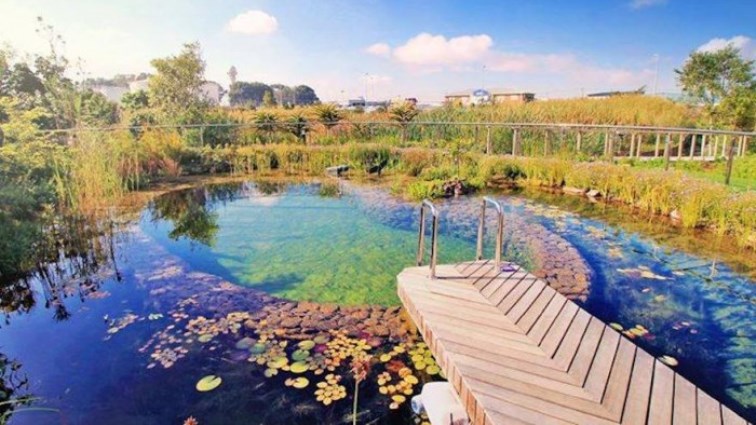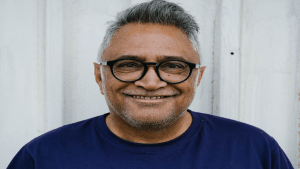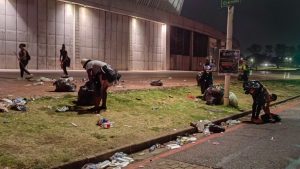Big companies around Cape Town have demonstrated their willingness to comply with regulations aimed at saving water following the worst drought in the Western Cape in the past century.
However, the newly-formed coalition of civil society organisations, the Water Crisis Coalition, is also putting pressure on big companies to explain programmes aimed at saving water and avoiding Day Zero when the taps will run dry.
Below average rainfall over the past three years in the Western Cape has contributed to the current drought situation.
In order to avoid Day Zero, the City of Cape Town has imposed severe water restrictions.
Currently, residents have a limit of 50 litres of water per person per day.
However, the Water Crisis Coalition, a group that represents nearly 80 community-based organisations, believes that big companies continue to waste million litres of water.
Recently, a delegation from the Water Crisis Coalition had a meeting with Coca Cola SA’s managers at the Parow bottling plant outside Cape Town. They claim the company uses more than 500 million litres of water a year.
“Coke is using a lot of water. It turns out that they are using 550 million litres for the year. It is a huge amount of water from our tap water. It’s a concern. We are here in a crisis. We had a cordial meeting. Our shock is that the only thing they are doing is offering a discount on bottled water; that is not enough. Most of our people cannot afford bottled water,” says Spokesperson Shaheed Mahomed.
However, Coca Cola’s Sustainability Manager, Johan Breytenbach, disagrees that they are using municipal water.
Breytenbach says water saving to them is not new and they have been doing it for many years.
“It is part of being a responsible citizen that we have to use this scarce resource sparingly. Our water saving journey didn’t start now with the drought, and it’s been going on for many years. We are also audited by the City of Cape Town in terms of water compliance and the sustainable projects that we do.”
Construction companies are also expected to comply with the water-saving regulations.
Cape Town Mayor Patricia De Lille recently visited the Mfuleni Extension 2 project where nearly a thousand residents will soon be moved to fully serviced plots.
De Lille says construction companies must use treated waste water on all community construction projects.
“It can be collected just over there from Macassar, Zandvliet treated waste water plant. It’s very dry and very sandy normally there. We are going to wet the sand, but they can’t even do that so from the building industry we engaged with them and they have come on board by using the treated waste water.”
Africa’s greenest hotel, the Hotel Verde, near the Cape Town International Airport, is leading by example. They have introduced an awareness programme for both staff members and guests.
Group marketing manager, Calvin Boia, says despite Day Zero being pushed back to July, there is still a need to continue with their educational programmes.
“Hotel Verde was constructed with green technologies. We installed grey water recycling, drainage harvesting, a 40 thousand litres which helps us with sub drainage waters; also grey water recycling plant. The two work together. We use the shower water that goes in turn to all different series of tanks.”
Boia says Day Zero would affect the business sector negatively and everyone must to do their bit to save water.
Click below for more on the story:






